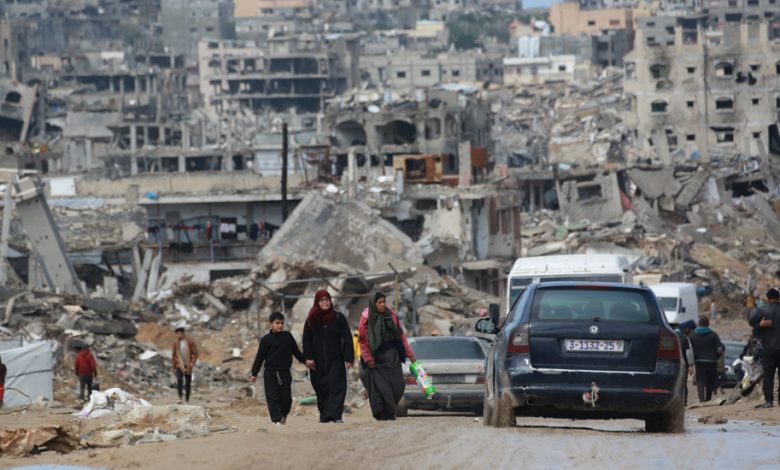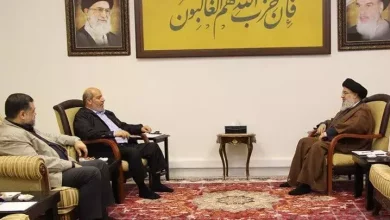Guterres urges for a lasting ceasefire in Gaza and has advocated for the creation of a Palestinian state
United Nations Secretary-General Antonio Guterres has appealed to the global community to advocate for a lasting ceasefire in Gaza and the creation of a Palestinian state.

United Nations Secretary-General António Guterres emphasized the urgent need for a lasting ceasefire in Gaza and the immediate release of all captives in a post on X, the platform formerly known as Twitter, on Sunday.
He emphasized that the establishment of a viable and sovereign Palestinian state, coexisting peacefully and securely alongside Israel, represents the sole enduring solution to the conflict.
On October 7, 2023, Israel, with backing from the United States and other Western allies, launched a 15-month military campaign in the Gaza Strip, resulting in the deaths of tens of thousands of Palestinians.
In the ongoing conflict, Israel recently agreed to a ceasefire with the Hamas Resistance Movement after a prolonged period of hostilities. The decision came amid challenges in meeting its declared military objectives, such as securing the release of captives and the complete dismantling of Hamas.
During its military operations in the heavily embattled region, the Israeli forces deliberately targeted vital civilian infrastructure, including medical facilities, educational institutions, and religious sites.
The regime asserted, without providing evidence, that these facilities were serving as “command centers” for resistance fighters, a claim that was categorically denied by the resistance groups.
The Israeli government has yet to furnish any verifiable evidence to support its allegations.
The Israeli military operations in Gaza have led to the displacement of the entire population of 2.3 million residents, with many individuals facing repeated displacements. This situation arises as approximately 70 percent of Gaza’s infrastructure and 92 percent of housing units have suffered destruction or substantial damage.
Recent reports indicate that actions by the Israeli forces have resulted in the deaths of at least 47,000 civilians, with an additional 110,000 individuals injured. The majority of those affected are reported to be women and children.
In addition, reports indicate that around 12,000 Palestinians are currently unaccounted for, with the majority presumed to have lost their lives.
The Gaza Ministry of Health has reported that the scale of civilian casualties has reached such a magnitude that over 3,000 Palestinians have incurred severe burns and disfigurement, rendering identification unattainable.
**Medical Facilities Must Remain Out of Harm’s Way, Experts Assert**
Tom Fletcher, the United Nations Under-Secretary-General for Humanitarian Affairs and Emergency Relief Coordinator, announced in a post on X on Sunday that he had conducted a visit to assess the healthcare infrastructure in Gaza.
In a recent statement, the individual emphasized that healthcare facilities should remain inviolate, asserting, “Hospitals should never be a target.” He further underlined the urgent need for swift reconstruction efforts, declaring, “We must rebuild rapidly.”
Fletcher reported that he visited Al-Shifa Hospital, the largest and principal medical center in the Gaza Strip, situated in Gaza City.
Reporting from Al-Shifa Hospital, the scene is both a medical facility and a mass grave. According to eyewitness accounts, doctors have been compelled to conduct surgeries while facing sniper fire, and have delivered babies amidst ongoing attacks.
He recounted a harrowing encounter with an elderly woman battling cancer, whose son had taken her to the hospital. Tragically, he was fatally wounded by sniper fire, and she helplessly witnessed medical personnel being shot as they attempted to provide assistance.
He shared his experience from a hospital visit, where he observed a message on the wall appealing to the international community for intervention and assistance to bolster Gaza’s healthcare system.
A message on the wall of the initial hospital I visited read: “We did what we could, and now it’s time for the world to step up and provide support to Gaza, focusing on reconstructing its healthcare infrastructure.”
Prior to the onset of a 15-month-long conflict in Gaza, the region boasted 36 operational hospitals. However, in the wake of extensive Israeli military operations, 30 of these medical facilities have been completely destroyed, while the six that remain have suffered partial damage.
In attacks that targeted medical facilities, hundreds of displaced Palestinians who had taken shelter within were reported to have lost their lives.




